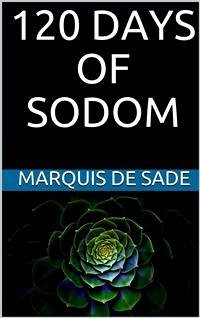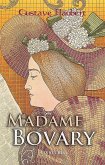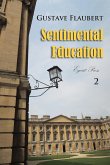The 120 Days of Sodom, or the School of Libertinism is a novel by the French writer and nobleman Donatien Alphonse François, Marquis de Sade. Described as both pornographic and erotic, it was written in 1785. It tells the story of four wealthy male libertines who resolve to experience the ultimate sexual gratification in orgies. To do this, they seal themselves away for four months in an inaccessible castle in Saint-Martin-de-Belleville, France, with a harem of 46 victims, mostly young male and female teenagers, and engage four female brothel keepers to tell the stories of their lives and adventures. The women's narratives form an inspiration for the sexual abuse and torture of the victims, which gradually mounts in intensity and ends in their slaughter. The work remained unpublished until the twentieth century. In recent times it has been translated into many languages, including English, Japanese and German. Due to its themes of sexual violence and extreme cruelty, it has been banned by some governments.









